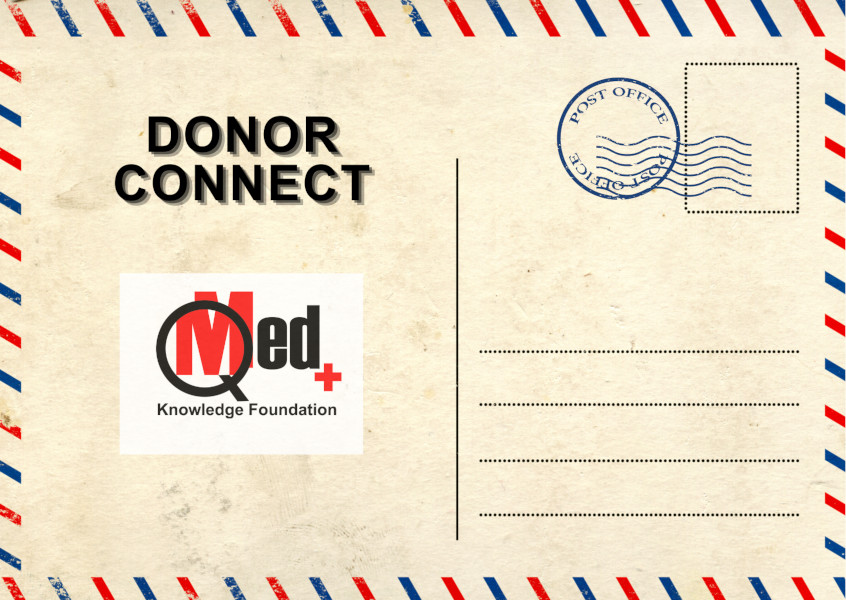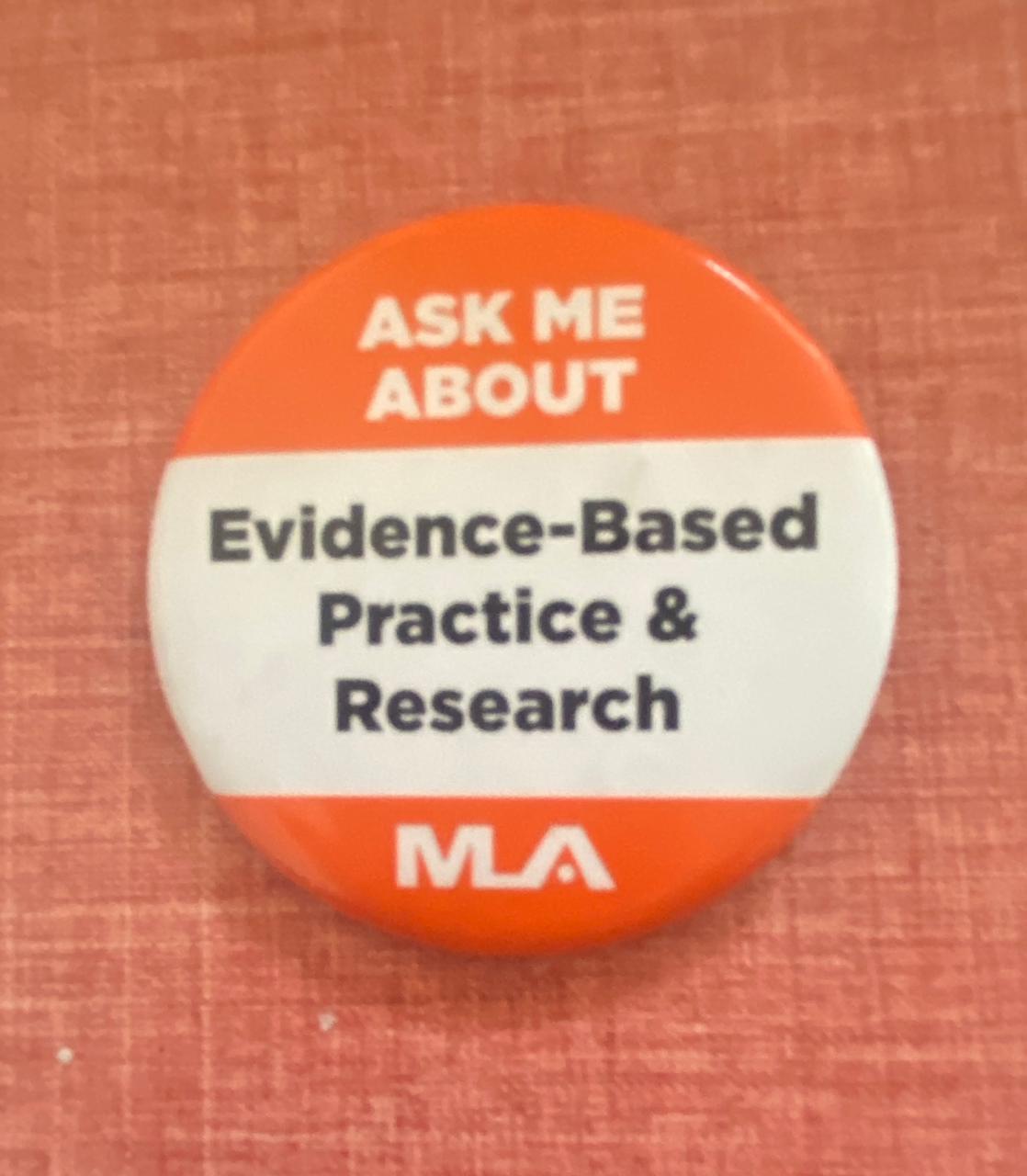Donor Connect: Our fortnightly updates to donors
Dear Donors - In case you have missed any of our mailers, you could check this page and catch up. And if you are someone who has stumbled upon this page for the first time, we invite you to join us in our journey. Give us a donation to sustain our work. Contribute your time/ expertise. Connect us with people who matter - in the National Medical Commission / ICMR or any of the Councils. Help us reach medical / nursing / dental / pharmacy and other colleges. In short - Become a part of the history we are creating! We welcome you!
Jan 21, 2025: A Ten year old girl understands QMed’s objectives
A couple of months ago, I traveled to Lucknow to attend a conference. During this time, I was collaborating on a project with a group of doctors. One of them, Dr. Sai, invited me to visit his home when he learned I would be in Lucknow. I gladly accepted and went over.
Dr. Sai and his wife, Dr. Namrata, were warm and welcoming. As we chatted, their ten-year-old daughter returned from her music classes. She was a bright and friendly child who quickly struck up a conversation with me. She shared stories about her school, music lessons, and an upcoming exam she was preparing for.
During our conversation, she noticed a badge I was wearing, pinned just below my shoulder. It read, “Ask me about Evidence-Based Practice and Research.” I had picked it up at a Medical Librarians’ conference in the USA, created by the Medical Library Association.
Curious, she asked me what it meant. I started by asking if she knew what the word “evidence” meant. She promptly replied, “proof.” I smiled and told her she was absolutely right. Then I explained:
“Your parents are doctors, and they prescribe medicines for their patients. But how do they know which medicines to prescribe? Researchers study these medicines by testing them on many patients and recording what works and what doesn’t. Other researchers then gather all these studies and analyze them together. This process helps us understand the ‘evidence’ for a particular treatment. And my job is to teach researchers how to find all the studies on a topic and make sure they don’t miss anything important.”
Without hesitation, she said, “That’s the most important part, isn’t it?”
Her quick understanding left me amazed. A ten-year-old grasped in moments, what many adults struggle to appreciate — that there are structured and precise methods for searching and synthesizing research.
This interaction reaffirmed why QMed’s mission is so important. At QMed, we ensure that every researcher and healthcare professional has the tools and training to find reliable evidence. Better research leads to better healthcare, and effective searching is at the heart of it all.
Your support has been crucial in making this possible. It enables us to teach and empower individuals to improve healthcare through evidence-based practices.
I’d love to hear your thoughts about this story. Perhaps you’d like to share it with someone who might find it meaningful. And if you’re inspired to contribute further, your generosity will help us continue creating a ripple effect in the world of healthcare and research.
Thank you for being an integral part of this journey.
Dec 31, 2024: Participant Feedback: 12 Years of experience, yet new insights
It was ICMR once again! But this time it was about a workshop funded by the ICMR. This was at NIPER, Guwahati. The ICMR has recently funded institutions for conducting week long workshops for those interested in authoring systematic reviews.
NIPER Guwahati was the first such institution to ensure that Literature searching – which is the foundation of a systematic review, was allotted a full day. And I was privileged to conduct this workshop!
The session had about 28 participants from institutions in the North Eastern Region. In addition around 22 NIPER students & researchers were also present.
An eye opening feedback was from a participant – Ahmad Rehan was – “It was excellent, I came to know about all this, after my 12 years of experience.” !
I was wondering how to estimate the human hours he lost in the 12 years, without this knowledge!
We hope the ICMR will ensure that our workshops and ELearning can make inroads for all systematic review training and authoring, in India. The difference will be amazing!
Nov 19, 2024: A researcher’s story: What Raghul Durairaj felt about QMedCourses

Date: Tuesday November 19, 2024
Category: Health Sector story
Keywords: QMedCourses, Researcher's story
This is a story about a research scholar who does “Secondary research” – that is research about research publications. Across the world “Information Specialists” (most often librarians) have a strong role in such research. They help to search all synonyms and variations. They help in searching several databases and lots more. All this work helps to ensure that no publication is missed and evidence is created from all available data.
Raghul Durairaj a researcher with a Masters in Public Health, went through our courses and shares his story:
Two years ago, I embarked on evidence synthesis projects, participating in four systematic reviews across India. We never consulted an information specialist for our search strategies, unaware of their vital role.
I learned about the importance of information specialists while proposing a Cochrane systematic review, which mandates their inclusion. A friend introduced me to the QMed Knowledge Foundation and Ms. Vasumathi Sriganesh, who became pivotal in my research journey.
Eager to enhance my skills, I sought training from Ms. Vasumathi. With an upcoming systematic review under the “Early Career Research Grant” from RSTMH, UK, I completed QMed’s online courses on search strategy development before diving into my project.
Initially, I planned to rely on the QMed team for the entire search strategy but was encouraged to take the lead. With their support, I independently developed and translated a search strategy for six databases, overcoming my initial hesitation.
I’m proud that my peer-reviewed search strategy was crafted with guidance from an Indian information specialist. The process took three weeks, and while I know I’m not yet ready to tackle every search independently, I now feel confident in collaborating effectively with specialists.
Our team saved time during article screening thanks to Ms. Vasumathi’s guidance in extracting articles from non-traditional databases like Google Scholar, ensuring we didn’t miss critical studies.
My experience with the QMed team has been transformative. I look forward to future collaborations and hope more researchers in India will seek out information specialists to elevate the quality of evidence-based research.
We at QMed hope to help and mentor many such researchers!
Aug 30, 2024: Program Update: “You have more faith in my abilities than I do”
The workshops at the KJ Somaiya Medical College and at the TNMC were both conducted with the grant money from Pfizer that we could not utilize earlier. Both events had great participation from students and faculty of the respective institutions.
The Whatsapp group of the TNMC was full of messages after the workshop thanking the organizer Dr Renuka Munshi as well as Vasumathi Sriganesh for the workshop. One Dr Shubham asked for a workshop on Systematic Reviews & Meta analyses sometime in the future. Vasumathi responded saying that her expertise stops with the sound literature searching that is required and she is not trained in the rest of the process
She was very touched when – Dr Surbhi commented – “I don’t think the day is far when you will be penning down a fantastic Systematic Review – that will speak volumes on your expertise!”
For which she responded “You have more faith in my abilities than I do”.
Bang came another response from Dr Armaity – “We all do, Madam”
TNMC docs – you have won Vasumathi’s heart!


